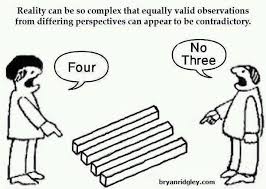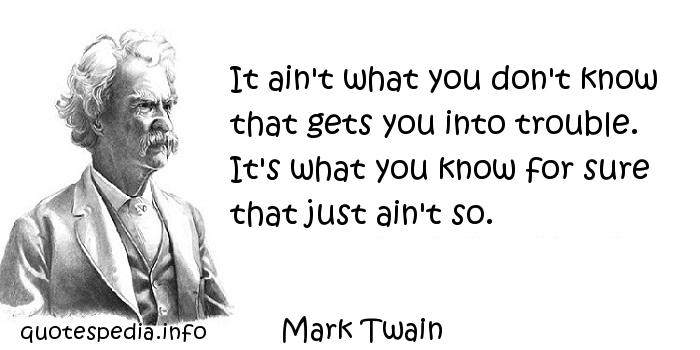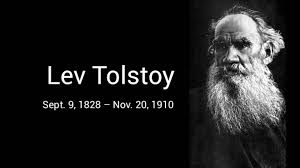 Kathryn Schulz asks: How does it feel to be wrong?
Kathryn Schulz asks: How does it feel to be wrong?
It feels the same as being right.
How can this be so?

Emotionally — how does it feel to be wrong?
Dreadful. Thumbs down. Embarrassing.
These are great answers, but they’re answers to a different question.
You are answering the question: How does it feel to realize you’re wrong?
Realizing you’re wrong can feel like all of that and a lot of other things, right? I mean it can be devastating, it can be revelatory, it can actually be quite funny… But just being wrong doesn’t feel like anything.
Actually it does feel like something to be wrong; it feels like being right.
 (Kathryn had driven across USA, and wondered why there were so many road signs written in Japanese. When she found out the signs indicated rest or picnic areas, she felt such a dill!)
(Kathryn had driven across USA, and wondered why there were so many road signs written in Japanese. When she found out the signs indicated rest or picnic areas, she felt such a dill!)
https://www.ted.com/talks/kathryn_schulz_on_being_wrong/transcript?language=en

So what do you know?
How do you know it? Can you be sure it’s true?
John Lloyd and John Mitchinson sold over a million copies of the noticeably stouter “Book of General Ignorance” (and followed it up with the 13.5% more ignorant “Second Book of General Ignorance”). They describe lots of things we think we know, but often get a bit wrong: This comprehensive catalogue of all the misconceptions, mistakes and misunderstandings in 'common knowledge' will make you wonder why anyone bothers going to school.
You could carry it everywhere to impress your friends, frustrate your enemies and win every argument, with facts such as:
No one has ever slid down a bannister. 
There are 613 commandments in the Bible.
Vipers, cobras and rattlesnakes are not poisonous.
Newborn babies are indifferent to their mothers.
The Swiss Family weren't called Robinson.
The unluckiest date is Monday the 27th.
You have no muscles in your fingers.
And coffee isn't made from beans!

This is a perfect quote, only it does not appear in any of Twain’s books, essays, letters, or speeches. Because Mark Twain never wrote it or said it or anything like it. The closest he came is “Faith is believing what you know ain’t so,” in Pudd’nhead Wilson’s New Calendar.
In any case. Mark Twain never existed: “Mark Twain” was the pen name of Samuel Langhorne Clemens (November 30, 1835 – April 21, 1910), an American writer, humorist, entrepreneur, publisher, and lecturer.
In other words:
 “The most difficult subjects can be explained to the most slow-witted man if he has not formed any idea of them already; but the simplest thing cannot be made clear to the most intelligent man if he is firmly persuaded that he knows already, without a shadow of a doubt, what is laid before him.” - Leo Tolstoy in “The Kingdom of God is Within You”.
“The most difficult subjects can be explained to the most slow-witted man if he has not formed any idea of them already; but the simplest thing cannot be made clear to the most intelligent man if he is firmly persuaded that he knows already, without a shadow of a doubt, what is laid before him.” - Leo Tolstoy in “The Kingdom of God is Within You”.
Why people believe weird things
 Why do people see the Virgin Mary on cheese sandwiches or hear demonic lyrics in "Stairway to Heaven"?
Why do people see the Virgin Mary on cheese sandwiches or hear demonic lyrics in "Stairway to Heaven"?
In this TED Talk, using video, images and music, professional skeptic Michael Shermer explores these and other phenomena, including UFOs and alien sightings. He offers cognitive context: In the absence of sound science, incomplete information can combine with the power of suggestion (helping us hear those Satanic lyrics in Led Zeppelin). In fact, he says, humans tend to convince ourselves to believe: We overvalue the "hits" that support our beliefs, and discount the more numerous "misses."
https://www.youtube.com/watch?v=8T_jwq9ph8k&t=13s
So what’s it all about?

Epistemology: (from Greek epistēmē, meaning 'knowledge', and -logy) is the branch of philosophy concerned with the theory of knowledge.
How do you know that you know the stuff you think you know?
Take away the option of answering “I just do!” and what’s left is epistemology.
It is the study of the nature of knowledge, justification, and the rationality of belief. Much debate in epistemology centres on four areas:
 (1) the philosophical analysis of the nature of knowledge and how it relates to such concepts as truth, belief, and justification,
(1) the philosophical analysis of the nature of knowledge and how it relates to such concepts as truth, belief, and justification,
(2) various problems of skepticism,
(3) the sources and scope of knowledge and justified belief, and
(4) the criteria for knowledge and justification. Epistemology addresses such questions as: "What makes justified beliefs justified?", "What does it mean to say that we know something?", and fundamentally "How do we know that we know?"
https://en.wikipedia.org/wiki/Epistemology
So what to do?
Fats Waller had the answer:

“Don't let it bother  you
you
If skies are grey
Learn to grin, take it on the chin
Everything will be okay!”
(My my, yes yes!)
- Thomas “Fats” Waller, in “Don't let it bother you”
So just listen to Fats Waller and His Rhythm: https://www.youtube.com/watch?v=iFOgx1ns0w8
My my, yes yes!